Recent Publications
Please see all OHM publications on the Oxford University Press website.
2026

Transnational Women's Liberation: Feminist Activism in the US, UK, and France, 1967–7
During World War Two some 67,000 Indian personnel of the British Indian Army were captured by Imperial Japanese forces, including a large number at the surrender of Singapore in February 1942. This book, the first of its kind, critically examines why these colonial Prisoners of War (POW) were largely forgotten in the post-war period, and therefore represents a case study in the formation of British wartime historical memory.
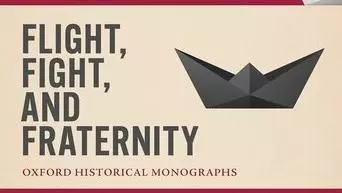
A Century of Asia Minor Refugees in Greece: Flight, Fight, and Fraternity
This book is a comparative—intergenerational and interregional—history of Asia Minor memories and identities of forced displacement that examines the multilayered relationship between contemporary attitudes and refugee past. In light of the centenary of the Asia Minor population transfer and the current migration and refugee crises, this study explores refugee memories and identities of expulsion, their intergenerational transmission, and the way that people with these memories think about subsequent migrations.

Politics, Polemic, and Political Thought During the French Wars of Religion
Lawyer and royalist, political prisoner and polemicist, Pierre de Belloy (c. 1550–1611) had the misfortune to live through interesting times. During the 1580s, Belloy became a notorious opponent of the French Catholic League for his position as the leading Catholic apologist for the cause of the Protestant Henri, King of Navarre. Imprisoned in the Conciergerie and the Bastille at the League's behest, Belloy escaped and was later appointed as Henri IV's Advocate-General in the Parlement of Toulouse, where he played a part in the king's politics of peacemaking in Languedoc.
2025

Indian Prisoners of War in Japanese Captivity during World War Two
During World War Two some 67,000 Indian personnel of the British Indian Army were captured by Imperial Japanese forces, including a large number at the surrender of Singapore in February 1942. This book, the first of its kind, critically examines why these colonial Prisoners of War (POW) were largely forgotten in the post-war period, and therefore represents a case study in the formation of British wartime historical memory.
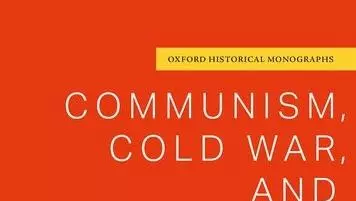
Communism, Cold War, and Revolution: The Indonesian Communist Party in West Java, 194
During the 1950s and first half of the 1960s the Indonesian Communist Party grew from a few thousand members to become the third largest communist party in the world, before it was annihilated in a violent purge in 1965-6 that saw perhaps half a million alleged communists killed.
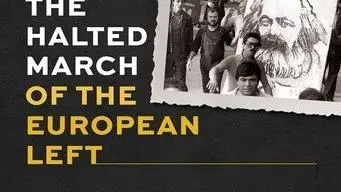
The Halted March of the European Left
The European left seemed to be in rude health during the 1970s. Never had so many political parties committed to representing the working class been in power simultaneously across the continent. New forms of mobilisation led by female, immigrant, and young wage-earners seemed to reflect the growing strength of the workers' movement rather than its pending obsolescence. Parties and trade unions grew rapidly as a diverse new generation entered the ranks. Why did the left's forward march halt so abruptly?
2024
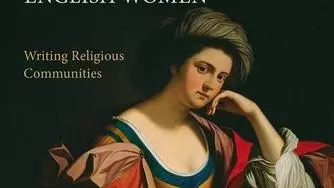
The Spiritual Lives and Manuscript Cultures of Eighteenth-Century English Women
Through an exploration of various significant but understudied personal relationships- including mentorship by older women, spiritual friendship, and care for nonbiological children-the book demonstrates the multiple ways in which women were active in writing religious communities. The women discussed here belonged to communities that habitually communicated through personal writing. At the same time, their acts of writing were creative acts, powerful to build and shape religious communities: these women wrote religious community.
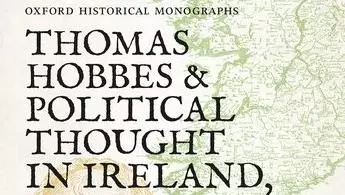
Thomas Hobbes and Political Thought in Ireland c.1660- c.1730
Thomas Hobbes and Political Thought in Ireland, c.1660-1730 is a history of political thought in Ireland, told from the perspective of the reception in that country of Thomas Hobbes, the English philosopher. Unlike Hobbes, political thought in Ireland has received little attention from historians: it is sometimes assumed that there is not much of a subject to study. The reception of Hobbes in Ireland forces us to challenge this assumption.
2023
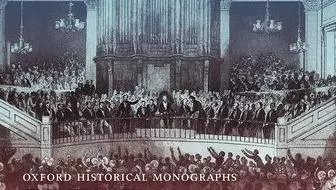
British Philanthropy in the Globalizing World
Between 1756 and 1840, philanthropy in the British world grew from the domain of small, associational committees to a vast enterprise of philanthropic and humanitarian societies with global reach. British Philanthropy in the Globalizing World tells the story of this movement, from its inception in small networks of mercantile and religious entrepreneurs to its signal projects and achievements in the abolition of slavery, in evangelical missionary societies, Bible societies, and in the early indigenous rights movement.
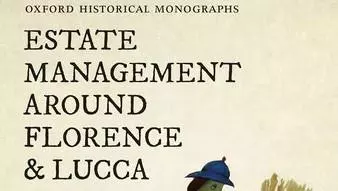
Estate Management around Florence and Lucca 1000-1250
This book examines the forms of estate management in the countryside of Florence and Lucca between the eleventh and the middle of the thirteenth centuries. It argues that their change reflects wider transformations of medieval economic patterns, and specifically the surge in overall demand that occurred in the decades bridging the twelfth and the thirteenth centuries.

The Muslim Secular: Parity and the Politics of India's Partition
Concerned with the fate of the minority in the age of the nation-state, Muslim political thought in modern South Asia has often been associated with religious nationalism and the creation of Pakistan. The Muslim Secular complicates that story by reconstructing the ideas of three prominent thinker-actors of the Indian freedom struggle: the Indian National Congress leader Abul Kalam Azad, the popular Kashmiri politician Sheikh Abdullah, and the nonviolent Pashtun activist Abdul Ghaffar Khan.
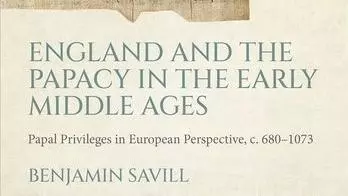
British Philanthropy in the Globalizing World
Between 1756 and 1840, philanthropy in the British world grew from the domain of small, associational committees to a vast enterprise of philanthropic and humanitarian societies with global reach. British Philanthropy in the Globalizing World tells the story of this movement, from its inception in small networks of mercantile and religious entrepreneurs to its signal projects and achievements in the abolition of slavery, in evangelical missionary societies, Bible societies, and in the early indigenous rights movement.
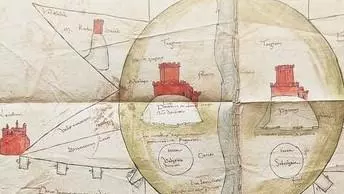
Estate Management around Florence and Lucca 1000-1250
This book examines the forms of estate management in the countryside of Florence and Lucca between the eleventh and the middle of the thirteenth centuries. It argues that their change reflects wider transformations of medieval economic patterns, and specifically the surge in overall demand that occurred in the decades bridging the twelfth and the thirteenth centuries.
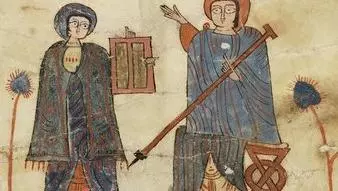
Text and Textuality in Early Medieval Iberia
Text and Textuality in Early Medieval Iberia is a study of the functions and conceptions of writing and reading, documentation and archives, and the role of literate authorities in the Christian kingdoms of the northern Iberian Peninsula between the Muslim conquest of 711 and the fall of the Islamic caliphate at Córdoba in 1031. Based on the first complete survey of the over 4,000 surviving Latin charters from the period, it is an essay in the archaeology and biography of text.

Anticommunism in French Society and Politics, 1945-1953
Anticommunism in French Society and Politics, 1945-1953 evaluates the prevalence of anticommunism among the French population in 1945 to 1953, and examines its causes, character, and consequences through a series of case studies on different segments of French society. These include the scouting movement; family organisations; agricultural associations; middle-class groups; and trade unions and other working-class organisations.
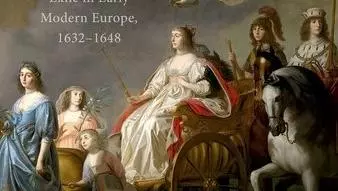
The Palatine Family and the Thirty Years' War
The Palatine Family and the Thirty Years' War examines the experience of exiled royal and noble dynasties during the early modern period through a study of the rulers of the Electorate of the Palatinate during the Thirty Years' War (1618-1648). By drawing on a wide range of archival source materials, ranging from financial records, printed manifestos, and considerable quantities of diplomatic and personal correspondence, it investigates the resources available to the exiled 'Palatine Family'.
